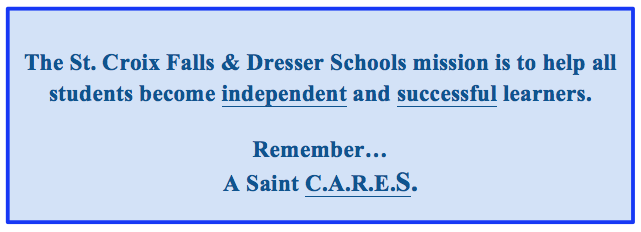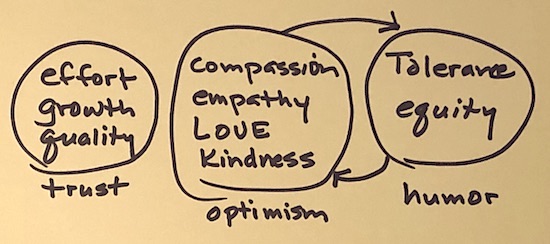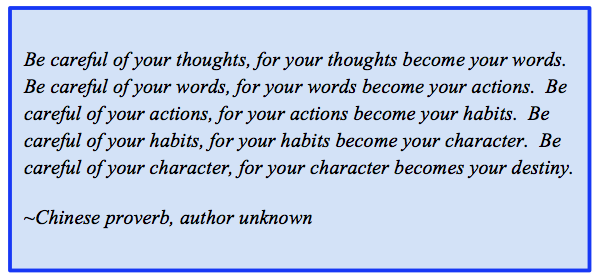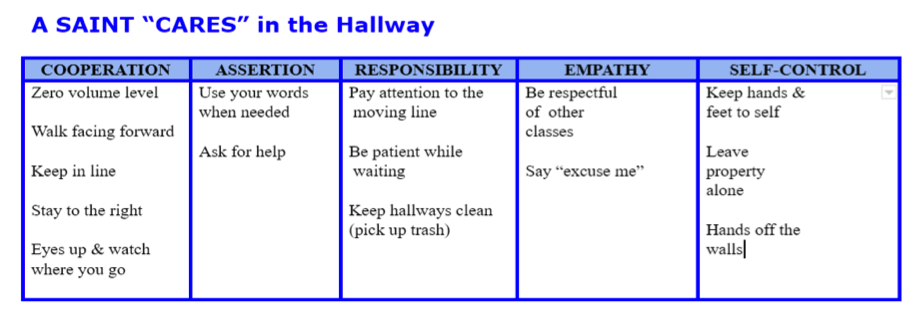When Values and Mission Guide Your Decisions
A MiddleWeb Blog
 Classroom teachers make something like 1,500 decisions a day. While the number of daily decisions made by principals isn’t as readily available, I suspect it’s a similar boatload.
Classroom teachers make something like 1,500 decisions a day. While the number of daily decisions made by principals isn’t as readily available, I suspect it’s a similar boatload.
Decisions, Decisions
Take a minute to think about the types of decisions you make on any given day. Some are seemingly simple and offered as responses to student questions. You have to chose to permit or deny.
- Can I go to the bathroom?
- Can I sharpen my pencil?
- Will you take my recess duty for me?
- Can I finish this after lunch?
Others are more intertwined with long-term goals.
- Are the students getting it?
- What curriculum objectives can I gloss over so I can meet other, more important ones?
- How can I talk to an angry parent?
Clearly, teachers often face some high-stakes decisions. In my new role as a principal, some of the decisions I make are also high stakes.
- Should a student be suspended?
- How do I handle employee conflict?
- Should I push for a new strategy, rule, or initiative?
- How do I balance parent needs with teacher needs?
Defining Your Core Values
As educators, we make so many decisions on a daily basis that we’re not always even aware that we’re making them. For the most part, that’s okay. But, all things being equal, being mindful of what is driving the choices we make is a good idea. A good place to start is by defining your own core values.
A simple way to do that is to look through a list of common core values and chose ten or so that resonate with you. Then look at the values you picked and try to group them into common topics.
Next, look at the common topics and decide if you can choose one word that best defines each. Finally, whittle the grouped or single core values to the five that most define your vision of your best self.
Here is an example of my work to choose the core values that best represent me.
My First List:

My Second List (Grouped):
My Core Values:
- Love
- Effort
- Optimism
- Trust
- Humor

I start and end every day by reviewing my core values because I know that keeping them in the forefront of my thoughts will help me keep them close to my heart as well. Read the Chinese proverb below. It really describes the whats and whys of keeping core values in your thoughts and on your lips.
 The Mission Statement
The Mission Statement
This year, my first as principal, in addition to using my core values as a filter for decision-making, I have spent quite a bit of time thinking about our school mission statement and how it should factor into my daily work.
The mission statement reads:

Using Your Values and Mission to Make Decisions
Truly, I have intentionally consulted my core values and the school mission before every decision I have made in working with staff, students, and families.
These are the questions I ask myself before taking any action.
- How will the action inspired by the decision help me live out my core values?
- Is the action really important?
- Will it help students be more independent?
- Will it grow students’ C.A.R.E.S. skills?
- Will it help students be more successful?
Even if I feel I am being true to my core values, unless the answer to at least one of questions two through five is a firm yes, I believe that there is no reason to take action and so I don’t.
Examples from the Field
In recent weeks, I’ve made two decisions that I feel illustrate my process well.
Example 1: Quiet in the Halls!
As mentioned above, about five years ago, my school developed our mission statement, and borrowing from Positive Behavior Intervention Supports (PBIS) practices, we made matrices to show students what it looks like to be an “independent and successful Saint who C.A.R.E.S.” in various areas of the school. Look below to see the matrix for behavior in the hallway.
Notice that the “cooperation” matrix calls for a “zero volume level” in the hallway. However, despite the fact that the staff had voted to enforce the rule, it never actually was enforced. When I became the principal, I had to grapple with this question:
Should I require and enforce the zero noise in the hallway policy, or should I strike the rule entirely?
I ran it through my questions, reflecting on how it was related to my beliefs. A summary of my thoughts are below under each question.
How will the action inspired by the decision help me live out my core values?
I think the action is important to optimism, effort, and love. I know it will be hard, but I think with some effort we can all hold each other accountable. The majority of the staff is frustrated by the few who aren’t on board. We made the decision together; I owe it to the staff to enforce it. I also know that allowing students the chance to practice self-control is a gift I can give. Another reason is that when the kids are loud in halls classes are disrupted. I think I love the students and teachers enough to watchdog this and see it through.

Yes. It will help students practice self-control. It will decrease disruptions to classes which are bothered by hallway noise. It will help the staff see me as a leader who can be trusted to keep my word and hold all accountable to collaborative decisions.
Will it help students be more independent?
Not really. But it will grow their skills for being good members of society.
Will it grow students’ C.A.R.E.S. skills?
Yes, holding them accountable to a zero noise level in the hallway will help students practice cooperation, empathy, and especially self-control.
Will it help students be more successful?
Ultimately, yes. Students with self-control tend to be more successful throughout their lives.
After thinking it through, I decided that I should require and enforce the zero noise in the hallway policy. I have done just that, and it has gone very well! Teachers and students report that, for the most part, they appreciate the rule and my efforts to stay true to it.
Example 2: What did you call me?

Should I focus on my feeling of anger and take action, or should I let it all go?
When I ran this question through my values-based filter, I came to a conclusion that made me feel good.
How will the action inspired by the decision help me live out my core values?
Taking action wouldn’t be in alignment with my core values. But, letting it go and moving on would.
Is the action really important?
No. Confronting the dad for swearing at me when he was really angry will do nothing to make the situation better for me, him, or his children.
Will it help students be more independent?
No. In fact, the student doesn’t even know about it.
Will it grow students’ C.A.R.E.S. skills?
No. It wouldn’t help me live C.A.R.E.S. values either. I was already assertive in that I ended the meeting. That is enough.
In the end, I decided to let it go and rely on my core values of optimism and love, thinking that my relationship with the student’s father would improve with time and empathizing with the fact that he was angry and feeling out of control. I also relied on my core value of humor, and I went home, told my husband a funny version of the story, and laughed it off.
Try It!
If you are interested in defining your decision-making process, try my method. Even if the only step you take is to develop your core value list, it will be worth it.



 The Mission Statement
The Mission Statement



































Thank you for your thoughtful and compelling ideas on values and mission. Your experiences and practices align with my own. It was encouraging to see these expressed by another educator. I guess I am an “edudork” as well!
Woot! Two edudorks are better than one!
Make that three! Interesting and relevant article!!
HA! Our own little edudork club!
Could you tell me where you see protecting kids from hurtful social phenomena fits in an administrator’s mission/values… I’m thinking of social realities such as relationship problems between students, bullying in person or through social media, etc. Thank you for your article and any time you have to respond.